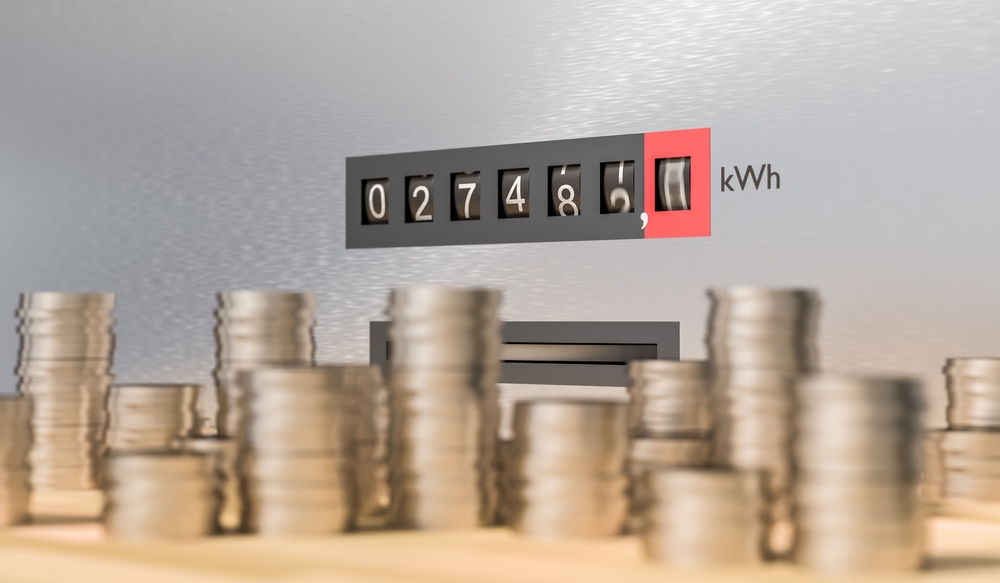


The President of the States' committee which has approved a large increase in electricity prices says he is "completely convinced" it is needed to allow essential investment in the island's electricity network.
The States' Trading Supervisory Board announced this morning that it had agreed inflation-busting price hikes from 1 July to increase Guernsey Electricity's revenue by 9%.
Deputy Peter Roffey, the President of the States' Trading Supervisory Board, said he understood that the price increases would add to concerns about cost of living pressures. But he said the investment they will fund was "very much in the consumers' interest".
Deputy Roffey blamed the need for such a large increase in one go on "10 years of dysfunctional regulation", including by the Guernsey Competition and Regulatory Authority, which ended in February this year when the States resumed control over electricity prices.

Pictured: Guernsey Electricity's prices now have to be approved by its shareholder, the States' Trading Supervisory Board, rather than by an industry regulator.
"Of course, I understand why some will feel that this is far from the ideal time to agree to Guernsey Electricity putting up its tariffs. In many ways, I agree with them. I really wish we were not starting from here," said Deputy Roffey.
"Sadly, a lacuna in the regulation of electricity tariffs has meant that no changes have been made in the underlying charges for electricity in the island for a decade.
"As a result, even after this increase, the real cost of electricity will be lower than it was 10 years ago. While that might sound like good news, the reality is that it has led to both gross under-investment in Guernsey's electricity infrastructure and consumers having to service the interest payments on a debt mountain, which has steadily built up at Guernsey Electricity during those 10 years of dysfunctional regulation.
"Now, each year, the first £2.4million paid in electricity bills goes simply towards paying the interest on that debt."

Pictured: Deputy Peter Roffey acknowledged that the timing of the price rise was far from ideal but his Board is convinced it is necessary to correct sustained under-investment in electricity infrastructure.
Deputy Roffey said that the revenue and investment constraints under which Guernsey Electricity has been operating would have been "completely unsustainable" at any time but are particularly problematic at a time of significant and rapid change in energy markets.
"The island is rightly looking to Guernsey Electricity to facilitate Guernsey's transition to a low-carbon energy economy," said Deputy Roffey.
"This will mean strengthening the electricity infrastructure, but at the moment Guernsey Electricity can't even afford to maintain current capacity and resilience. Many requests for developments which would put additional strain on the grid are having to be refused for lack of capacity. This is holding Guernsey back.
"Without a sea change in the level of investment which Guernsey Electricity is putting into the island's electricity infrastructure, it is not too dramatic to say that in not too many years the lights could go out.
"That would be disastrous for Guernsey's economy and its reputation and we simply could not allow it to happen.
"The current States' Trading Supervisory Board was not responsible for this situation developing. We inherited it. But it does fall to us to put it right."

Pictured: When considering Guernsey Electricity's application to increase tariffs, the States' Trading Supervisory Board took into account the effect on the company of needing to move towards more renewable forms of energy.
Guernsey Electricity demonstrated to the satisfaction of the States' Trading Supervisory Board that it required additional revenue to invest at least £10.7million a year in the island's electricity infrastructure between now and 2025. Some improvements to the supply network are said to be long overdue.
"We took expert independent advice on the capital requirements of Guernsey Electricity and are completely convinced that the planned £10.7m spend per year is the absolute minimum required," said Deputy Roffey.
"This will be only partly funded by the tariff increase and, sadly, will also require yet a further increase in Guernsey Electricity's debt.
"We have also insisted on an independent efficiency audit being carried out before next year's tariff application.
"Our focus is 100% on what is in the best interest of electricity consumers. While these increases - which, incidentally, are lower than Jersey's - will obviously be unwelcome, we are convinced the investment they will fund is very much in the consumers' interest."
The full decision notice regarding the 1 July price increases can be read by clicking HERE.
Proposals expected soon to change electricity prices and tariffs
Regulator, GE and States agree on new approach to prices and tariffs
Comments
Comments on this story express the views of the commentator only, not Bailiwick Publishing. We are unable to guarantee the accuracy of any of those comments.